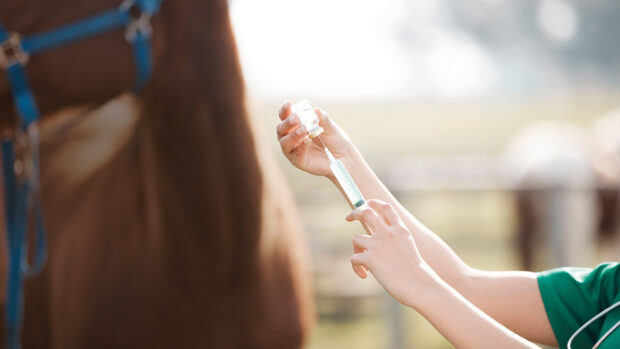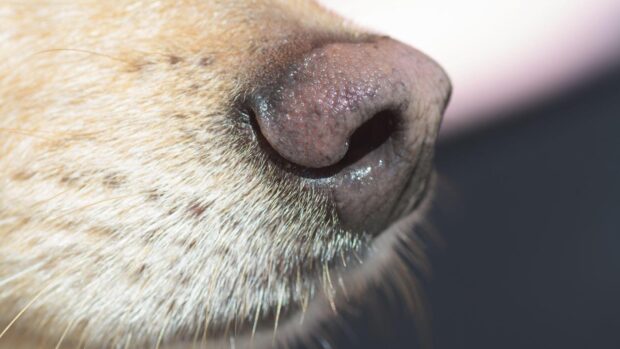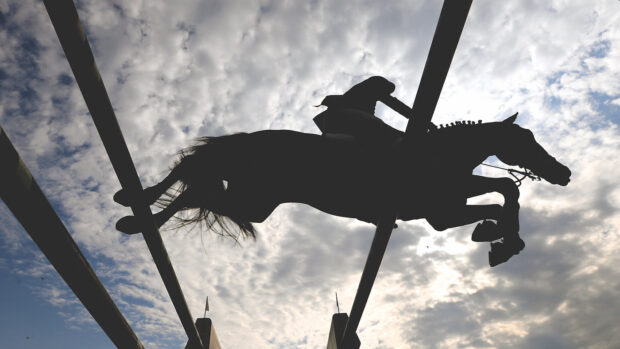Last week, the first pronouncements of the FEI’s new endurance strategic planning group were seriously undermined by the revelation that Jaume Punti Dachs (pictured) — a member of the FEI endurance committee and the sport’s new European champion — was found to be in illegal possession of veterinary products in a government agency raid on 7 August.
The Veterinary Medicines Directorate (VMD) seized 124 medicinal products from his base, Moorley Farm East in Newmarket, which is owned by Sheikh Mohammed’s Darley Management Ltd breeding operation. However, it is not used for any thoroughbred breeding or training purposes.
Mr Punti Dachs’ own website states that he has trained endurance horses for the ruler of Dubai since the late 1990s, mostly for the Juma (taken after his own nickname) and Al Aasfa Overseas teams.
The VMD said the drugs — including “injectables, anaesthetics, anti-inflammatories and antibiotics” — were seized because “they were not authorised in the UK and had not been imported into the UK in accordance with the regulations”.
Second drugs seizure this summer
H&H learnt of the seizure shortly after breaking the story that the VMD had impounded a shipment of illegal medications on a private jet at Stansted Airport in a separate incident on 3 May.
This latest seizure, at Moorley Farm East on 7 August, came just two weeks after Jaume Punti Dachs was one of two representatives of the FEI endurance committee that attended the “round table” in Lausanne (24 July) convened by the FEI to tackle concerns about endemic doping and high incidences of fractures in endurance.
In a statement, issued by heavyweight PR Paddy Harveson, the Prince of Wales’ former communications director, Mr Punti Dachs declared: “There is no indication whatsoever of any suggestion of any wilful or careless wrongdoing.”
Mr Punti Dachs self-published a list of products seized, saying this would show that it was a “completely normal cabinet”.
Mr Punti Dachs — who is married to the 2010 endurance world champion and fellow Spaniard Maria Alvarez Ponton — said such visits by the authorities were “routine” and “expected”.
The drugs were, he said: “All substances that you can buy in the UK… and are standard medicine cabinet [sic] in any stables.”
He added that the VMD had explained how to source the same medicines at Newmarket Equine Hospital — and he collected them the following day.
Newmarket Equine Hospital was not available for comment.
Drugs for the use of vets only
But H&H has learnt that, far from being “routine”, the raid was intelligence-led — and the first of its kind in living memory in Newmarket.
We showed the list of seized drugs (see graphic, below) to leading equine vets.
In an unusually forthright statement, the president of the British Equine Veterinary Association (BEVA), said: “We would not expect to see powerful medicines like these on a horse owner’s premises.
“They are restricted for the exclusive use of vets in the UK, as they are very powerful, can have serious side effects and require high levels of technical and veterinary skill to administer and monitor their effects.”
Under the Veterinary Surgeons Act, only a vet may inject medicines either intravenously, or directly into the joint of a horse.
In order to practise in the UK, a vet must be registered with the Royal College of Veterinary Surgeons (RCVS).
The RCVS, which is liaising with the VMD about the seizures, said: “If an unregistered vet (for example, an overseas vet) or other person has been involved [in injecting these drugs]… we would support any police investigations.”
The RCVS is urging anyone with suspicions about unregistered vets to contact them, or the police, immediately.
Charles Trolliet, a vet who — as head of the Swiss Equestrian Federation — has led calls for the FEI to sort out the “unacceptable” levels of doping and injuries in endurance also voiced his unease.
“For me as a vet, if a horse needs treatment, it must first be diagnosed and then I will give the correct amount of medication for this disease,” he said.
‘Controlled’ substances
On Saturday (14 September), Mr Punti Dachs became European endurance champion. He was fourth at the final “open” endurance Europeans in the Czech Republic, behind two UAE riders and one from Bahrain.
Sheikh Mohammed had been due to ride on the UAE team, but was a non-starter.
His Darley breeding operation in Newmarket has distanced itself vociferously from Moorley Farm East, as has the British Horseracing Authority (BHA). BHA spokesman, Robin Mounsey, said there was “no link between the seizure and the racing industry”.
The Moorley Farm East seizure included steroidal and non-steroidal anti-inflammatories such as phenylbutazone (bute), dexamethasone and flunixin. They are used in all disciplines, including racing and endurance.
H&H asked the FEI if it would ask Mr Punti Dachs to stand down from the FEI endurance committee for breaking the import and VMD regulations of the UK, where he has spent time on a regular basis since 2010.
In response, an FEI spokesman referred to the raid as a “so-called drug seizure”.
The spokesman added: “The matter is being investigated by the British authorities and, as it is an open case of which the FEI only has indirect knowledge, we are not in a position to comment.”
Additional reporting by Pippa Cuckson
Originally published in Horse & Hound 19 September 2013




